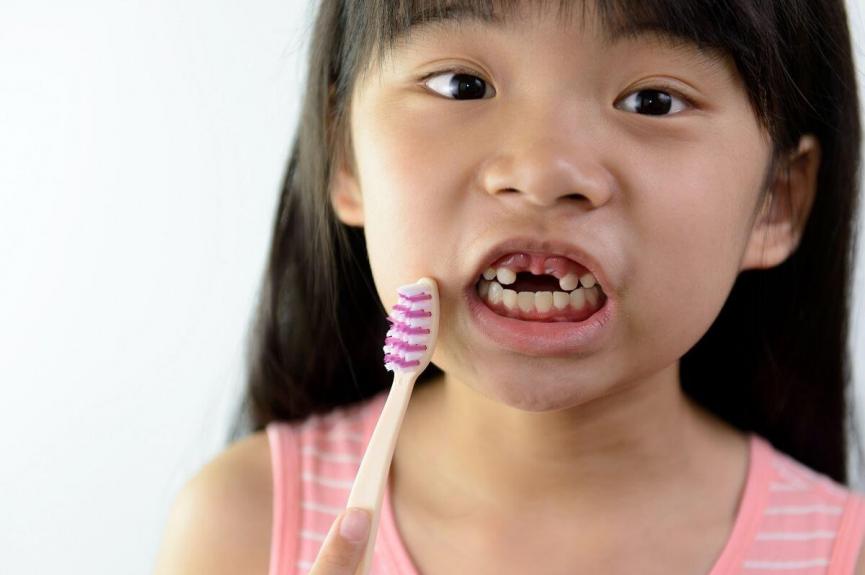
Price/Cost table
Type | Price/Cost $SGD |
| Average consultation fees for paediatric dentists | $50 - $150 |
| Scaling and polishing for kids | $70+ |
| Dental fillings for children | $100 - $150 |
Good oral health care is not just for adults. Actually, it’s one of the most important things we must look after if we have children. Keeping the kids safe and healthy is a top priority for any parent. We all know that children are more likely to get cavities. And for a lot of children visiting the dentist can be a stressful event. Especially the first visit to a dental clinic. A lot of them fear unfamiliar surroundings, people, strange tools, and most importantly whether they’re going to be in pain. For a lot of adults out there childhood dentist's visit caused some trauma. And we don't want to do that to our kid's childhood memories. That’s why investing our time into finding the right pediatric dentist is crucial.
The right pediatric dentist is the one who will not only care about your children’s teeth but can also put them at ease and provide them with a positive dental experience. That’s why we gathered a lot of information and we share tips on how to find the right dentist for kids in Singapore. So, if you're looking for the right dentist for toddlers or your teenager - this article is for you!
What is the difference between a general dentist and a pediatric dentist in Singapore?
Generally speaking, a pediatric dentist has the same dentistry education as a regular dentist. But what is different, compared to a general dentist is that pediatric dentists have additional training that allows them to provide dental services for children and even toddlers and babies. For example, pediatric dentists in Singapore have extensive training in general and paediatric dentistry to become one. But paediatric dentistry specialisation alone is not enough for one to become a kid dentist. First, they have to get a general degree in dentistry, spend 2 years doing general practice, and then get an additional Master’s degree in pediatric dentistry.
After that, they need an additional 2 years of specialist practice and a Board Examination. Then finally, they will have certification in pediatric dentistry. So you can expect that pediatric dentists in Singapore are very well trained and they can work with children and even a baby very well. Dentistry for children is a complex specialization that requires a lot of attention and time. That's why pediatric dentists are able to communicate with children, they know about child psychology and child development. Studies have shown that the success rates of pulpotomies in children is higher when performed by pediatric dentists as compared to general dentists 1.
What do pediatric dentists do exactly?
Pediatric dentists, more commonly called baby or kids dentist in regular conversations, also have specialized dentistry training to work with children with special needs 2. Some pediatric dentist specialists also have the training to work with children with autism – they know how to implement techniques to make kids feel safe and stress-free at the dental clinic. They also provide dental care for children with special needs or conditions that need special attention and dental services. Pediatric dentists can also work with a baby too if it requires dental attention. A lot of the time pediatric dentists do both paediatric dentistry and orthodontics.
Besides that, of course, comes dental work as well. They will treat and detect any teeth or gum disease a child or a baby gets.
What age should a child go to the dentist?
Most recommendations in Singapore will tell you to organize your child’s first dental examination before he or she is 3 years old. The best time to start taking your child to the dentist is when he/she is between 6 to 12 months of age 3. Infants don't really require any dental needs but once they have their first baby teeth it may be a good idea to start doing regular dental check-ups. It’s important that kids go to the dentist as early as possible because that can help them develop good dental habits. Research suggests that early exposure to a dentist builds up comfort and children become less and less scared of visiting the dentist. And it promotes oral health and proper oral care at an earlier age that will benefit kids well into adolescence and adulthood. If parents neglect a cavity, or broken tooth, for example, it can quickly turn into a bigger, more serious problem that will require more serious dental treatment.
Another question that people ask is “What age should a child stop going to a pediatric dentist?". Some parents ask that especially if we talk about teenagers and adolescents. If your child is a teenager it’s a good idea that they keep going to a kids' dentist because they are still experiencing changes in their face and jaw growth.
What happens during a pediatric dentist's visit?
Dental visits are always different based on a patient and their needs. For example, if the patient is still a baby, then the dentist has a hard job keeping the baby calm and perform an oral exam. If the patient is a baby, then it may be a challenge to dentists because babies might cry or not even open their mouths. Pediatric dentists also take care of kids until they are practically adults. But one of the most important roles they have is to advise parents on how to take proper dental care for their children - like maintaining good oral hygiene and proper brushing the teeth and flossing. Kids' dentist also helps break adverse habits such as thumb-sucking, for example.
During an introductory visit, the pediatric dentist will perform an oral exam on the child and diagnose potential problems and create a treatment plan. In some cases, they might work alongside an orthodontist to correct uneven teeth. In other cases, pediatric dentists may even help diagnose other health problems such as diabetes.
Do dentists clean children's teeth?
Pediatric dentists provide preventive services for children such as dental cleaning and fluoride treatment as well. Professional dental cleaning is not usually advised on baby teeth. But it’s advised on children who have their full set of teeth or already have their adult teeth out. First cleanings usually take place between 12 and 36 months of age.
That’s important because besides normal tooth brushing may not be enough to remove plaque. Having frequent dental cleaning will ensure that there is less risk of cavities and oral infections. It will also ensure that the child has healthy teeth and gums, prevent tooth decay and other oral diseases. It’s also important from a psychological point of view – going for routine checkups, cleaning and fluoride therapy will build good dental care habits for the future.
How often should a child see the dentist?
It’s important that kids go to the dentist every 6 months for a checkup and cleaning, according to the American Academy of Pediatric Dentists 4. Going for regular checkups is very important because it’s by far the most effective way to detect any issues early on and treat them before they get serious. Even a cavity can become a huge pain if not treated in time.
How do dentists clean the child’s teeth?
Here’s what happens during a professional kids' dental cleaning. The dentist will remove any plaque and if there’s hardened plaque – they will remove it with special tools. They will also polish the teeth and remove any stains (from tea or food). Teeth cleaning might be uncomfortable and slightly painful but it’s worth it in the longer run.
Is it safe to put a child to sleep for dental work?
Sometimes dental work would require some form of sedation, especially if the dentist is treating deep cavities or more serious problems. The safety of the sedation also depends on its type. For children, most often the nitrous oxide is used (often called laughing gas) 5. It won’t put the child to sleep but it will make them feel relaxed. Also, there’s no need for special preparation instructions when using laughing gas. It’s also considered the safest and least invasive way to sedate and relax kids with few side effects.
For intravenous sedation, there are a few more instructions patients need to follow. During intravenous sedation and general anaesthesia, the child will be completely asleep.
There are established safety guidelines when it comes to deep sedation for children. These guidelines conclude that at least two people should be at the procedure to observe if anything goes wrong.
You should talk to your dentist about all of your options if your child needs any sort of oral sedation.
What are the most common dental problems children have in Singapore?
It’s not surprising that tooth decay and cavity are one of the most common problems children have in Singapore (and everywhere else). That happens because a lot of children don’t brush their teeth properly, they might eat a lot of sugary foods or have other problems that may cause cavities. Cavities are easy to treat and they can be prevented with regular dental checkups.
If necessary, the dentist may recommend fissure sealant treatment in order to prevent the development of tooth decay and keep the child's teeth strong. Sealants are thin coatings applied to grooves, pits, and fissures of back teeth to protect them from tooth decay. This prevents food particles from getting stuck in the grooves of the teeth, preventing decay.
Another common problem is sensitive teeth. Some kids can feel uncomfortable when eating hot or cold foods. There are multiple reasons for that including cavities, new permanent teeth, acid erosion (loss of tooth enamel), or other dental issues. If your child experiences sensitive teeth, go for a checkup so they rule out the causes.
Orthodontic issues. A lot of kids experience orthodontic issues such as crooked teeth or unbalanced jaw development. There might be multiple causes for that as well – such as genetics, common habits like thumb sucking, and others. Usually, children can undergo orthodontic treatment around the age of 7-8. Restorative dentistry services are important for kids because if they don't receive the necessary treatment the dental issue may worsen and cause other problems as well.
Dental Anxiety. Children are often afraid to go to the dentist. That’s not really a surprise given that plenty of adults don’t feel comfortable going to the dentist too. But dental anxiety may become a more serious problem because it can stay well into adulthood and affect oral health. That’s why the role of an experienced pediatric dentist is crucial. They will give you advice and also show kids that going to the dentist is not so scary after all!
Cost of Pediatric Dentists in Singapore
If you’re looking for information about pediatric dentists in Singapore, then you’re probably curious about the cost for treatment and oral exams too. In the next section, we’ll explain everything in detail.
Is a paediatric dentist more expensive than a general one?
The cost for pediatric dental consultations in Singapore can vary anywhere from $50 to $150. With that said, the price depends on a lot of factors. One of the most important ones is whether you decide to go the private route or the public route. A lot of parents of children prefer to go for treatment in a private dental centre or clinic because the waiting list at a public dental or general medical centre can be longer, and they can end up waiting a lot for consultation. But generally speaking, pediatric dentists may be more expensive than general dentists because of their education and years of training. The final cost might also depend on the type of treatment and whether or not the clinic you go to works with insurance.
Can I use Medisave or other insurance to pay for pediatric dental services?
Dental insurance coverage in Singapore is complicated and largely depends on the insurance company. Medisave is also an option – usually, the treatment that children get are all listed in government approval. If you have any questions regarding the coverage, call your dentist or the dental clinic and they will explain everything about payment plans in detail.
Finding the best pediatric dentist for your child in Singapore
To find the right dental clinic and team of dentists for your children in Singapore you should probably start with getting advice from your paediatrician, other parents, friends, and your general dentist. They will give you recommendations and help you find someone. But you should also look online – there are many websites and directories for kids dental service and dental specialists.
The most important factor when choosing a pediatric dentist is naturally their expertise and experience. Much like other medical practitioners, you need to know that your child is in good hands. Pay attention to whether the dentist asks questions regarding your child’s diet, general health, and medical history, and previous dental treatment. During your consultation, the dentist should also give advice on dental hygiene and proper teeth care.
But the other thing that is just as important as expertise is their communication with your child. Your child should feel comfortable and at ease while getting treatment. It’s important to find a friendly dentist who does the oral examination gently and know how to make your child comfortable.
Final Thoughts
As a parent, you always want the best for your kids. That includes everything regarding their health – from the food they eat to the doctors they see. And of course, quality dental care is no exception. Finding the right kids dentist and dental clinic for your child has many benefits. First, they will feel at ease and will feel comfortable in the dentist's office. But they will also build the habit of taking care of their dental health from an early age. Also, going to the dentist from a young age will help detect issues such as cavities early on and prevent dental disease.
There are a lot of options in Singapore for modern and equipped pediatric dental clinic and dentistry for kids and finding the right dental team may feel somewhat overwhelming. But by researching and being informed you’ll be able to do that with ease. We hope that this article helped you!
- 1. https://pubmed.ncbi.nlm.nih.gov/32847668/
- 2. https://www.aapd.org/research/oral-health-policies--recommendations/mana...
- 3. https://www.stanfordchildrens.org/en/topic/default?id=a-childs-first-den...
- 4. https://www.aapd.org/resources/parent/faq/
- 5. https://www.ncbi.nlm.nih.gov/pmc/articles/PMC4555969/







